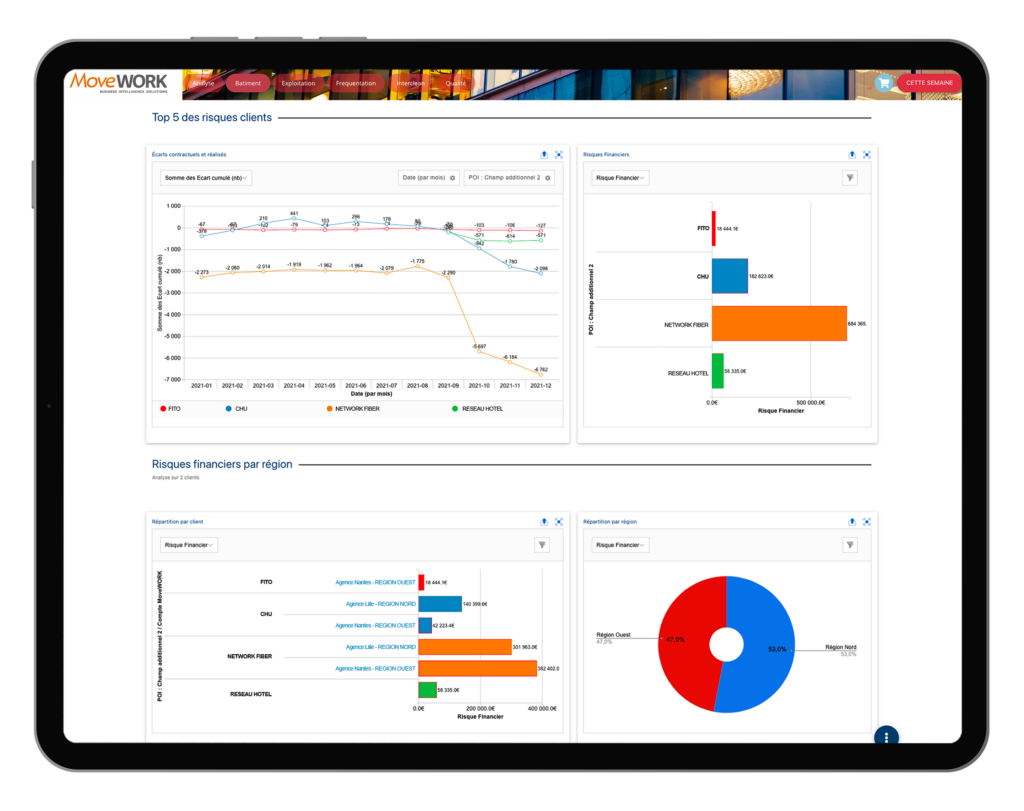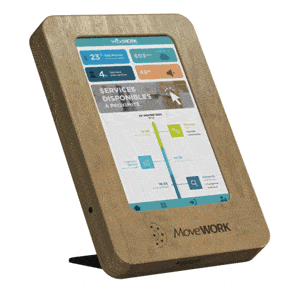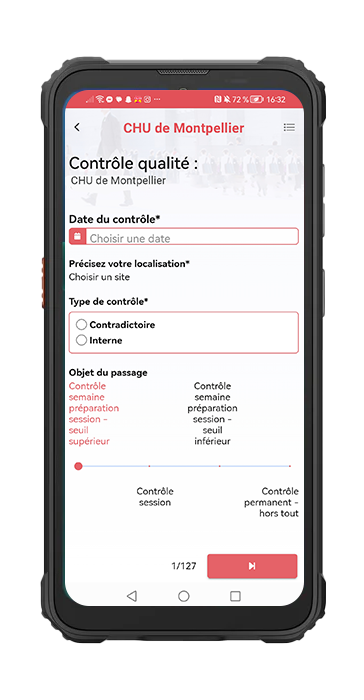Cleaning, maintenance, reception services… Regardless of the service, a high level of quality is expected. However, in some cases, excellence is not always achieved and you may face unpleasant surprises. So, how can you monitor your service provider’s performance? How can you be sure that contractual commitments are being met? MoveWORK offers you a comprehensive guide to effectively monitor your service contract.

1. Understand the elements of the service contract
To establish effective monitoring of your service contract, the first step is to analyze the composition of the document. Reviewing the contract will reaffirm the roles and responsibilities of each party and identify any potential misinterpretations. If any issues are found, this analysis may lead to a revision of the commitments to ensure that both the service providers and clients are on the same page.
Analysis of the expected services and deliverables
The service contract is a legal agreement, governed by the Civil Code, between a service provider and a client, whether a professional or an individual. The provider agrees to deliver specific services to the client in exchange for compensation.
The service contract must therefore clearly define the terms and conditions of the paid activity and the obligations of each party. To ensure the satisfaction of both parties, here is a list of elements to verify:
- The identity of the parties and their business name
- The nature of the services provided and the deliverables related to these activities
- The deadlines and frequency of service delivery
- The scope of services provided (excluded services)
- The expected quality standards, performance indicators, and established protocols
- The duration of the contract and, if applicable, the deliverable schedule
- The specific tasks and responsibilities of the service provider
- The specific tasks and responsibilities of the client
- The functional, material, technical, and logistical needs
- The confidentiality clauses
- The intellectual property rules
- The obligation of result or means
- If applicable, the ethical rules
Analysis of the financial and legal aspects
In addition to the purely technical and operational aspects, there is also a significant financial component. The service contract must include financial clauses specific to the proposed activity. To ensure proper execution of the contract, you must be fully aware of these parameters. In case of any issues, they will help you prove any breaches.
- Payment terms: amount, payment methods, and schedule.
- Termination clauses: conditions under which the contract can be canceled by either party. All termination scenarios should be outlined, such as contract violations, undeclared work, or force majeure, to avoid any inconvenience.
- Notice period for termination
- Financial compensation required in case of termination
- Automatic renewal clauses
Analysis of the legal aspects
Finally, the service contract is subject to a number of regulations. The document must clearly state the jurisdiction and legal framework applicable in case of disputes. It may define the processes to follow in the event of disagreements, such as mediation, arbitration, or resorting to courts.
GDPR, cybersecurity, data hosting… Additionally, incorporating these regulatory aspects into the service contract is crucial for compliance. This includes clauses on data management, user consent, and security measures implemented to protect this information. This legal environment will allow you to define the type of monitoring to develop in full compliance with the law.

2. Implement a system for monitoring the service contract
Once the service contract has been analyzed, it is time to establish the appropriate monitoring system. Tracking attendance, monitoring completed tasks, tracking requests… The complexity of the system to be implemented will vary depending on the desired level of traceability.
Attendance management and time tracking
To ensure the quality of service from your contractors, the first step is to ensure they are present at your site. An absent service agent will have difficulty completing the scheduled tasks on the day of their absence. Similarly, a late agent will have less time to properly complete the requested services. Therefore, implementing time tracking and attendance systems is a logical approach for monitoring the service contract.
To achieve this, there are various connected devices that can record clock-in and clock-out times. These tools include solutions such as time clocks, mobile time tracking apps, and connected kiosks.
Fixed time clocks and badge readers: Pioneers in time tracking, these tools allow for the identification of the service provider through NFC, badge, code, or QR code technologies. These devices provide quick clocking and automatically record the arrivals and departures of agents. Hours worked and completed shifts are logged in a management interface, enabling you to verify compliance with the specifications by your service providers.
Mobile Time Tracking Apps: With the rise of mobile technologies, many companies are turning to smartphone apps to manage team attendance and absences. These tools typically allow for time tracking via NFC systems, QR codes, or Bluetooth technology. They enable easy collection of work hours from anywhere, even for employees on remote job sites. They offer significant flexibility for both the client and the service provider
Connected Terminals: Whether it’s an In/Out button, a touch kiosk, or a ticketing terminal, these devices also allow for the control of your service providers’ schedules. With a simple action, agents can record their arrival, allowing you to monitor compliance with the service contract
But be aware! While very effective for managing your operations, the deployment of time tracking devices is highly regulated. The use of such equipment must comply with current regulations, including GDPR. Any agent from your service provider can assert their right and request the removal of their time tracking data from your database.
Additionally, tracking work hours will only be truly effective if the time tracking equipment is integrated with management software. These interfaces allow for digital centralization of data and facilitate the correlation of information. With a glance, you can identify discrepancies, analyze trends, and report these findings to your service provider as part of the service contract.
Discover how La Sorbonne manages its external service providers with MoveWORK
Tracking tasks and interventions
To ensure the proper execution of your service contract, another key aspect is tracking operational tasks. By digitizing the intervention processes, you’ll gain transparent indicators on completed interventions. So, how should you proceed?
The simplest solution is to equip your service providers with mobile applications dedicated to Facility Management activities.
These digital tools offer precise traceability of tasks performed on your sites. Followed protocols, ongoing and upcoming interventions, and handling of your requests are all automatically collected and transferred to a management platform. At a glance, you get a 360° view of workflow and clear operational KPIs:
- Task completion rate
- Completion time
- Completed tasks vs. planned tasks
- Average duration per type of intervention
- Number of additional service requests
- Response time to client requests
- Number of visits per area
The possibilities for performance indicators are limitless. The more digitized your environment is (sensors, IoT, QR codes, etc.), the more comprehensive your operational mapping can be. Beyond tracking, mobile applications enable your service provider to hold their agents accountable and engage them in a quality service approach. Additionally, by using event history, your provider has an innovative tool to optimize team schedules and maximize their efficiency.
3. Monitor the Quality of Service Deliveries
The final aspect of monitoring the service contract is quality management. Regardless of the number of agents on your sites or the number of interventions carried out, if these are not performed to standard. To control these parameters, digitalization is once again an appropriate solution.
Firstly, it is necessary to digitize the quality control processes of your operations. Why digitize? To avoid potential transcription errors, omissions, loss of paper records, unnecessary costs, or significant time losses. Digitalization allows for the instant collection of quality indicators and automates their analysis in simple and intuitive dashboards.
So how do you digitize? Here again, mobile technologies seem to be the best option! Mobile applications offer the ability to evaluate services at any location or client site. Whether it’s from the perspective of the service provider or the client.
Quality checks and counter-checks can be done in just a few clicks. Agents can take photos before and after the intervention, capture electronic signatures from clients, and fill out checklists of standards to be met. In case of anomalies, alerts are sent immediately, reducing the response time to unexpected issues.
As a result, thanks to this digitalization, you will get a detailed follow-up on the quality of service from your provider in customized reports:
- Number of quality checks performed
- Weighted score of quality checks
- Number of non-conformities identified
- Compliance rate of interventions
- Distribution of compliance (types, areas, procedures…)
- Incident resolution time
- Evolution of non-conformities
- Penalties applicable to the provider
4. Optimize communication and information exchange with your service provider
Finally, after implementing operational monitoring, it’s crucial to establish smooth communication processes between all stakeholders. If an incident is reported, how will you be notified? If you need exceptional service, how do you inform the provider? If you are dissatisfied with an intervention, how do you express your dissatisfaction? Deploying connected tools that enable instant information exchange will address these issues. This will improve the execution of the service contract.
Connected Service Kiosks: These fixed devices can be installed in your work environment and customized according to their location. With their configurable interface, you can tailor the types of requests as needed: maintenance, restocking of supplies, cleaning, ventilation, etc. Requests are sent directly to your service provider.
Mobile Apps for Occupants: Following the same principle as the service kiosks, these tools allow you to customize requests based on your profile and location. The best part? Mobile apps offer real-time tracking of how your requests are handled by the service provider.

- Management Platforms: These software solutions enable the creation of service kiosks or virtual client portals. Like the previous devices, the customization of these request interfaces is limitless. Additionally, these platforms offer highly advanced reporting features. All operational data is centralized into clear graphs, and access can be adjusted based on user profiles.
MoveWORK Flow: The all-in-one platform for your service contracts
What if you combined all the tools listed below into a single platform? That’s the challenge MoveWORK has tackled with its MoveWORK Flow platform! More than just software, this solution integrates a fully modular, cross-functional, and all-encompassing connected ecosystem. Here’s more about it:
- Presence management, absence tracking, and work time collection: By connecting to time-tracking equipment and mobile apps, MoveWORK Flow allows you to collect data on arrivals, departures, and working hours of your service provider’s agents. All information is centralized in its interface, processed, and analyzed automatically. In case of delays or absences, replacement scenarios are automated to alert managers and substitutes within seconds. To take it a step further, MoveWORK Flow integrates with your payroll and HR software, enabling automatic data transfer and simplifying payroll periods.
- Traceability and management of interventions: To ensure precise tracking of your service contract, MoveWORK has developed mobile apps tailored to different profiles. Whether for the service provider, supervisor, or occupant, each has a personalized tool to record all operational activities. With these tools, you get a clear view of ongoing tasks and requests, upcoming interventions, and past activities.

Service quality control: The MoveWORK Flow platform ensures rigorous monitoring of your service provider’s compliance. Quality control, automatic handling of non-compliance, tracking of corrective actions, KPI dashboards—everything is centralized in a dedicated module. Thanks to the platform’s intelligent system, quality data is correlated, allowing you to identify critical or blocking points.
Client portals and workspaces: MoveWORK Flow facilitates communication and collaboration among all stakeholders with its client portal editor. You have access to a dedicated space where you can view real-time information related to the service, activity reports, and performance indicators. This transparency enables proactive management of service delivery, ensuring continuous optimization of operational processes.





